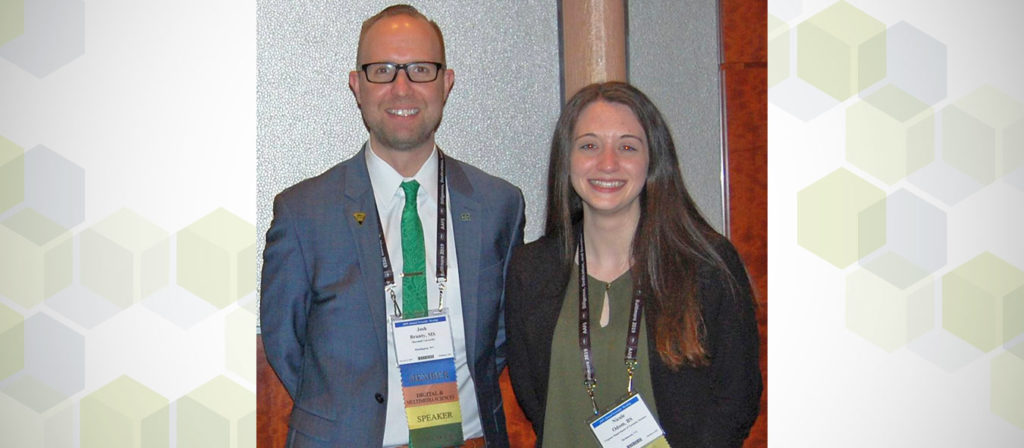Josh Brunty, associate professor of digital forensics and information assurance in Marshall’s College of Science, and Nicole Odom, a Marshall forensic science alumna, will give a presentation on Smartwatch Forensics at the 10th Annual Open Source Digital Forensics Conference (OSDFCon) Oct. 16 in Reston, Virginia.
Their presentation will provide a methodology for the forensically sound acquisition of data from stand-alone wearable devices. Brunty and Odom also will share a software tool they created in a lab at Marshall. It’s called GearGadget, and it allows forensic extraction of data from Android Smartwatch devices.
Odom and Brunty also authored a paper on their research, titled “Forensic Inspection of Sensitive User Data and Artifacts from Smartwatch Wearable Devices,” which was accepted for publication in the November 2019 issue of the Journal of Forensic Sciences.
“It is important to immerse our students into the digital forensics field through applied research and internship opportunities as soon as possible,” Brunty said. “Not only do these applied research projects advance the field of digital forensics, but they also tackle real-world issues that we could never replicate in a classroom setting.”
Before teaching at Marshall, Brunty was an examiner and technical leader with the West Virginia State Police’s Digital Forensic Unit at the Marshall University Forensic Science Center. He has participated in various national and international committees and panels focusing on the advancement of digital forensic science in the United States and currently serves as a member of the National Institute of Standards in Technology’s (NIST) Organization of Scientific Area Subcommittee on Digital Evidence and serves on the Scientific Working Group on Digital Evidence (SWDGE) and ASTM E30.12 digital evidence subcommittee.
Odom is a forensic scientist in the Virginia Department of Forensic Science’s (DFS) Digital & Multimedia Evidence (DME) section. She earned a master’s degree from Marshall’s Forensic Science graduate Program, with an emphasis in Digital Forensics and an additional Graduate Certificate in Digital Forensics. As a student, she worked in the West Virginia State Police Digital Forensics Lab and helped create GearGadget through research she completed as an intern of the Virginia DFS’s DME section. She earned certifications with Cellebrite and AccessData, is an affiliate member of the American Academy of Forensic Sciences Digital & Multimedia Sciences section, and a member of ASTM 30.12.
Originally from Jean Hardiman for Marshall University Communications.
